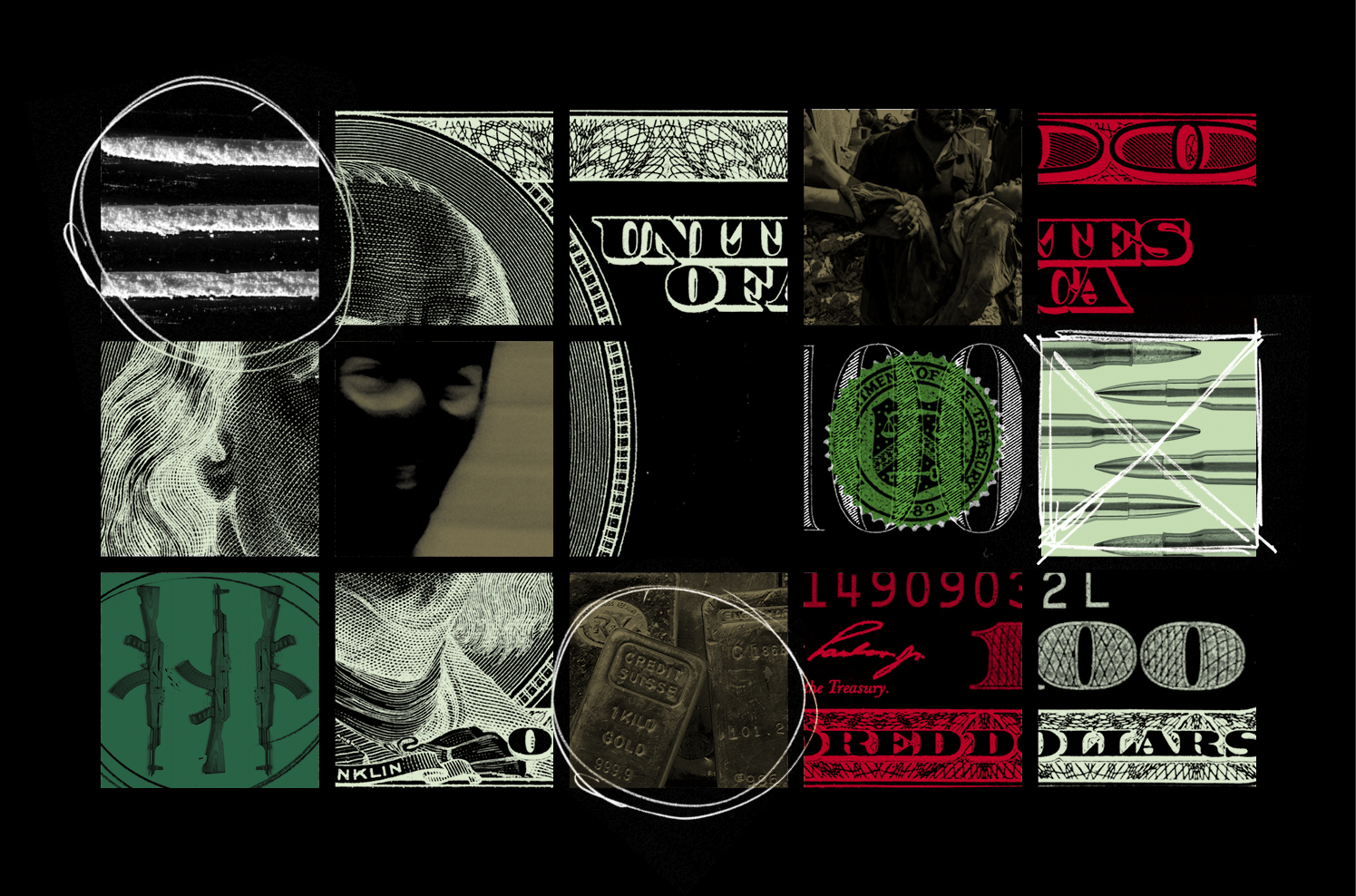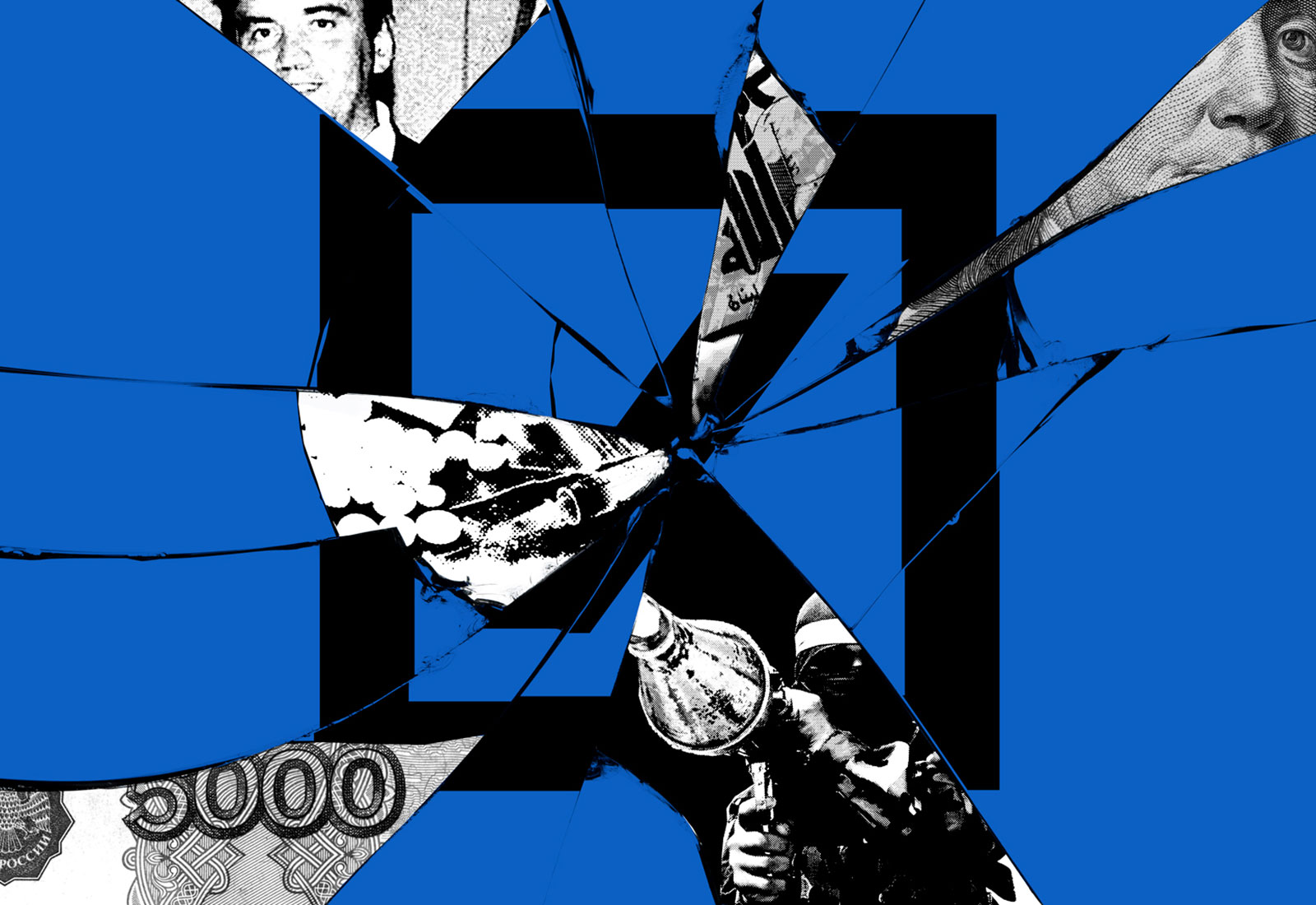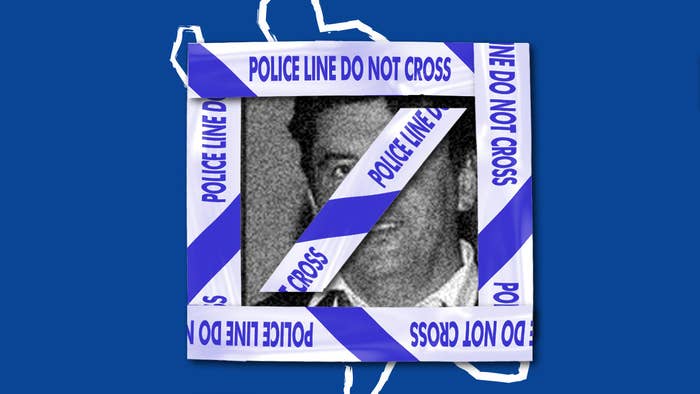
After Alexander Perepilichnyy dropped dead while jogging outside of London, US intelligence concluded that he was likely “assassinated on direct orders” from Russian President Vladimir Putin “or people close to him.” Perepilichnyy had exposed the Magnitsky fraud, a $230 million tax scam by corrupt Russian government officials two years before, which became a flashpoint in US–Russian relations and led to sanctions against Russian officials.
Perepilichnyy knew about the scam because he had facilitated it, helping to launder the stolen funds into Swiss bank accounts. He worked with all kinds of dubious clients, from the alleged ringleader of the Magnitsky fraud to funders of Syria's Assad regime, which has used chemical weapons on civilians. And even after Perepilichnyy’s death in 2012, a company he founded, Financial Bridge, would become embroiled in one of the largest dirty money fiascos in history.
In what became known as the mirror trading scandal, money launderers moved at least $10 billion over four years through some of the most prestigious banks in the world. During that time there were at least three internal alerts at Deutsche Bank about Financial Bridge — and more than 100 for the mirror trading network. But Deutsche never halted the flow of illicit funds.
The inside story of how Deutsche kept moving the dark money and kept raking in fees — exposed today in the FinCEN Files, a joint investigation between BuzzFeed News and the International Consortium of Investigative Journalists — reveals new information about one of the biggest financial crimes in history.
But it also sheds light on how illicit cash is siphoned out of the former Soviet republics and into the mainstream banking system. Perepilichnyy and Financial Bridge serve as prime examples.
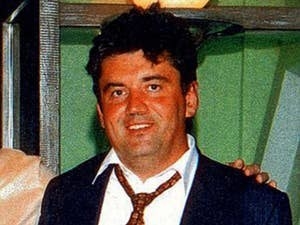
After Perepilichnyy transformed himself from a money launderer to a whistleblower, Financial Bridge did not disappear — instead it found a new life in the criminal underworld. In October 2012 — a month before Perepilichnyy’s death — it was taken over by two anonymous shell companies.
Soon afterward Financial Bridge informed another bank it held accounts with, Danske Bank, that it had two new “beneficial owners,” records obtained by L’Espresso and ICIJ show.
One was a security consultant named Igor Marakin. US authorities have linked a company he controls to the Russian mafia.
Financial Bridge was a key part of the mirror trading scandal. The money laundering gang moved illicit cash for criminals and terror financiers, according to a secret US government report.
Had the banks acted forcefully in the wake of Perepilichnyy’s death, they might have put a crimp in Financial Bridge’s plans and perhaps even halted one of the decade’s biggest financial scandals years before it unfolded.
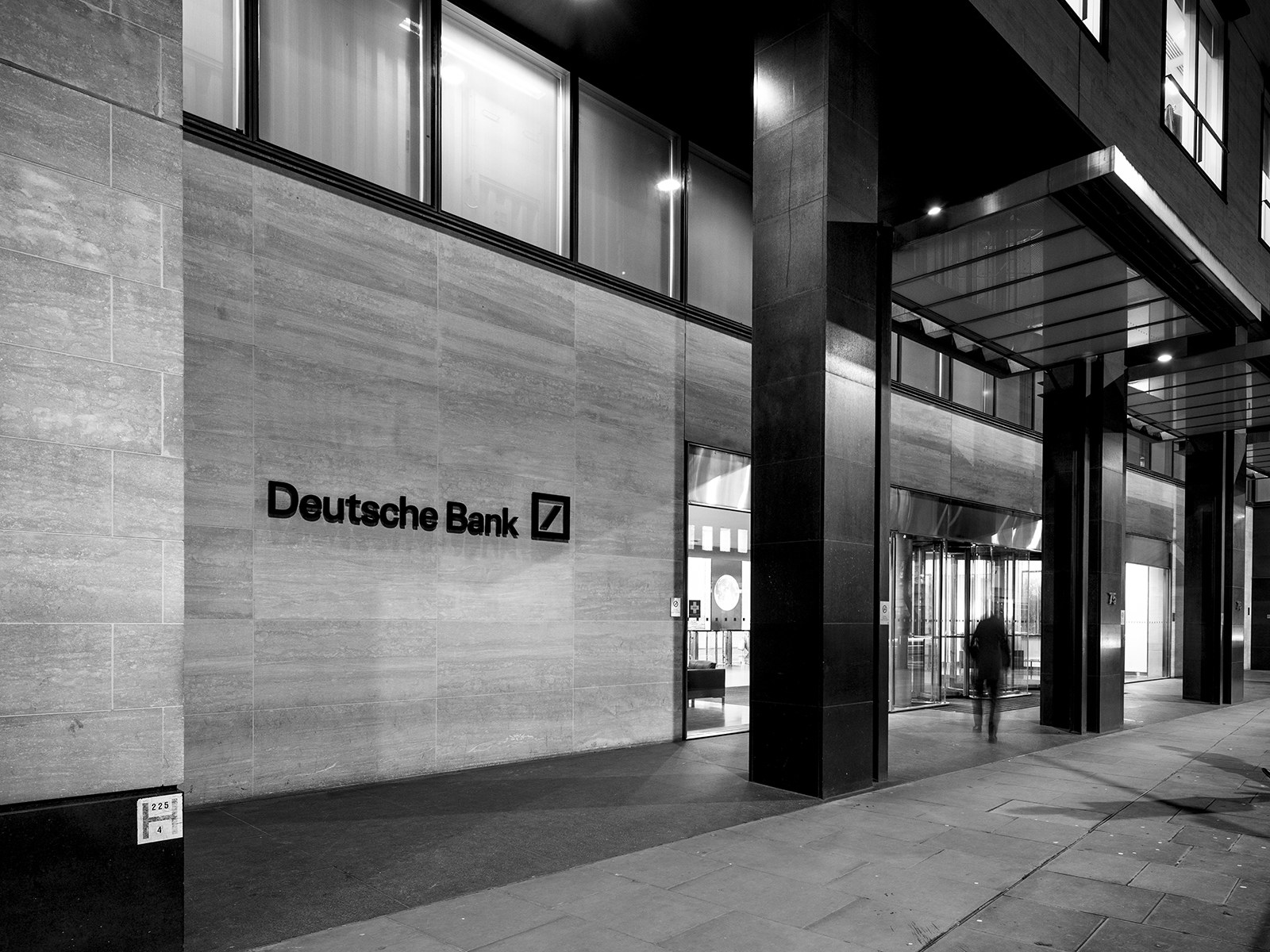
The scheme was uncovered four years later in 2016, and the following year authorities in the US and UK fined Deutsche Bank $630 million for its role. Mirror trades are permitted under the law, but they can be manipulated for illegal purposes such as money laundering.
A spokesperson for Deutsche noted that the mirror trading network “was criminal action by individuals,” and said that authorities in the US and Europe had praised the bank for being “exceptionally cooperative” with their investigations. Since the scandal hit, the bank has “committed significant resources” to stopping money laundering, the spokesperson said.
Danske Bank declined to comment on Financial Bridge, but acknowledged its own 200 billion euro money laundering scandal. “We were too slow in realising the extent of the issues and to close it down,” said Philippe Vollot, its chief compliance officer, in a statement.
Marakin’s alleged role in the vast mirror trading network is laid out in a secret intelligence report, written by analysts at the US Treasury Department’s Financial Crimes Enforcement Network and shared by BuzzFeed News with ICIJ.
The report, marked “Law Enforcement Sensitive,” warned that the network “highlights a vulnerability in the global securities market for money laundering.” Using a mix of bank data and other intelligence, it detailed how the network allegedly conducted billions of dollars’ worth of trades, some on behalf of “illicit actors.”
At the heart of the system, according to the report, were four Russians who used a series of banks and brokerages to transfer “billions of dollars per year” for a “fee of up to five percent.” According to the report, they used Russian rubles to buy stock in large companies, then immediately transferred the shares to Europe and sold them on for dollars, euros, or pounds — allowing them to change large currency sums without the usual oversight from the authorities.
Two of the four Russians, Alexei Kulikov and Oleg Belousov, owned stakes in Promsberbank, where President Putin’s cousin Igor was a director. Millions of dollars were stolen from the bank. Bankruptcy documents from Promsberbank show that money had been siphoned into the mirror trading network.
Kulikov was jailed for his role in the Promsberbank theft. Belousov’s whereabouts are unknown. Neither responded to requests for comment.
Another alleged key figure in the scheme, the Russian financier Andrei Babenko, is now in Israel where he has worked in the cryptocurrency industry. The fourth, Andrey Gorbatov, is in Moscow, according to his LinkedIn profile. Both Babenko and Gorbatov denied involvement in the network in interviews with BuzzFeed News.
Marakin was a director or owner of at least three companies in the mirror trading network, including one that sent cash to a firm controlled by Lazar Shaybazian, who was barred from the US financial system in 2012 for his work with Vladislav “Blonde” Leontyev, described by US authorities as a Russian mobster and a high-level narcotics trafficker.
The government has declared that Shaybazian and Leontyev are part of a group called the “Brothers' Circle,” a network of Eurasian criminals linked to drugs, human trafficking, and violence around the world.
Shaybazian did not respond to requests for comment. Leontyev said he had been wrongly targeted by US sanctions and did not know Shaybazian.
All these transactions occurred behind closed doors while another saga played out in public: Was Perepilichnyy assassinated and, if so, was that murder linked to his disclosures of Russian money laundering?
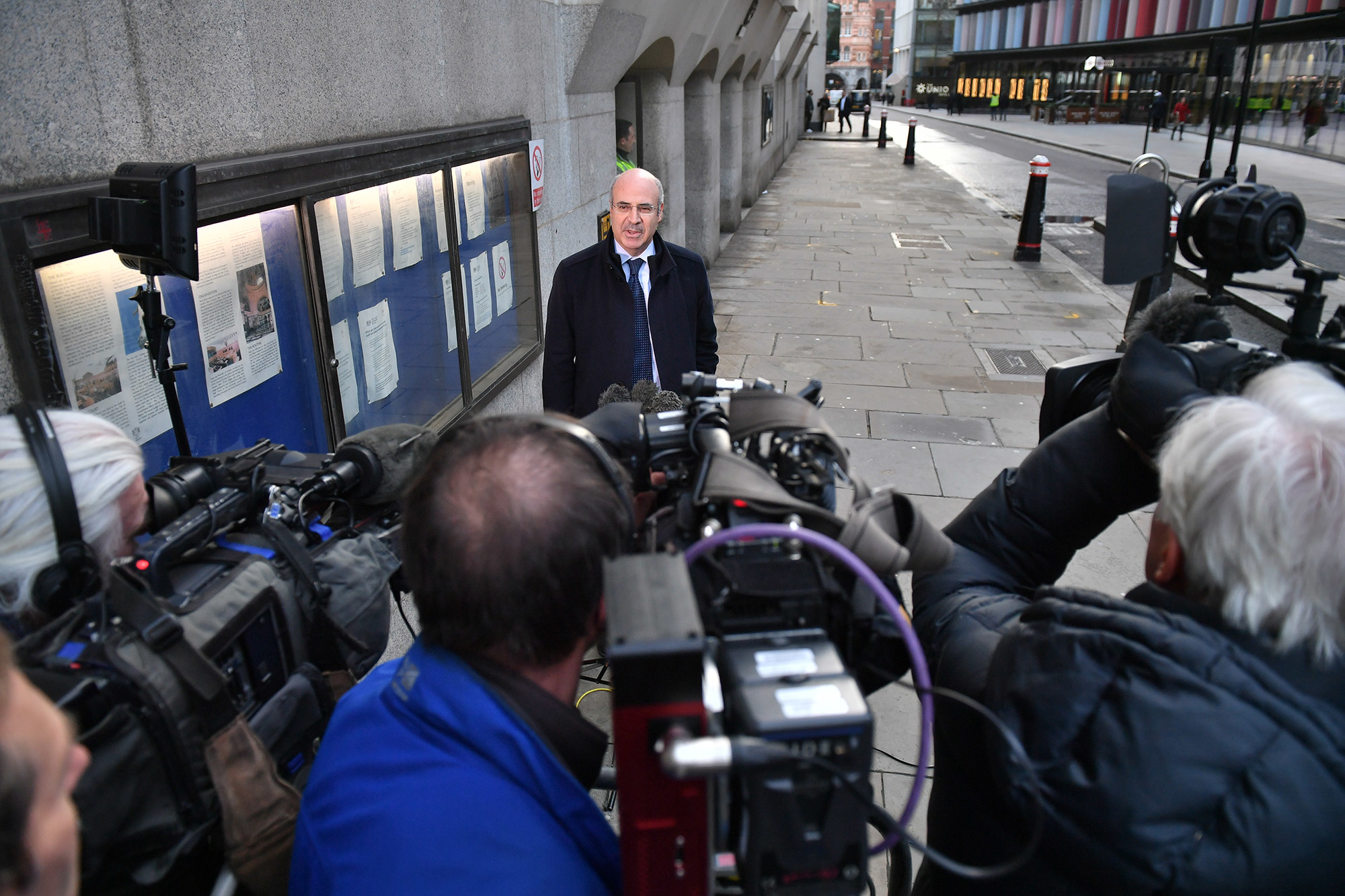
In 2017, a BuzzFeed News investigation revealed that the American intelligence community had “high confidence” that Perepilichnyy was assassinated by agents linked to Russia.
The coroner’s investigation, which had been held up for years by UK government requests to keep information about his death secret, ultimately said that Perepilichnyy “likely” died from natural causes but that it was not possible to rule out that he was killed.
The proceedings were overshadowed by revelations of an inadequate police investigation into Perepilichnyy’s death. The police admitted they had lost hard drives of financial data belonging to the financier. Lawyers argued at the inquest that the drives could have shed further light on the risks Perepilichnyy faced.
Earlier this year, in a UK government review into Russian interference in the country, officials gave evidence to Parliament about a series of suspicious deaths, including Perepilichnyy’s. But the evidence was withheld from the public for national security reasons.
Igor Marakin did not respond to requests for comment. Images online show him partying and learning to fly. ●









